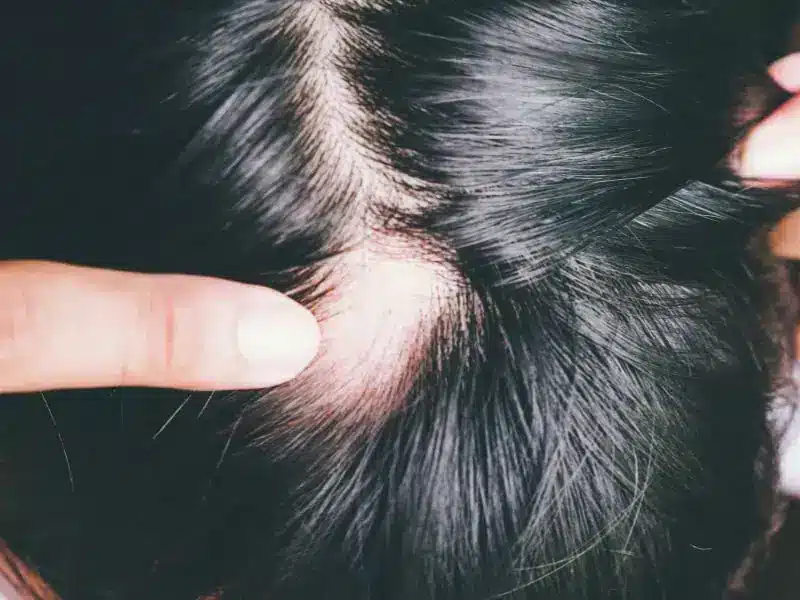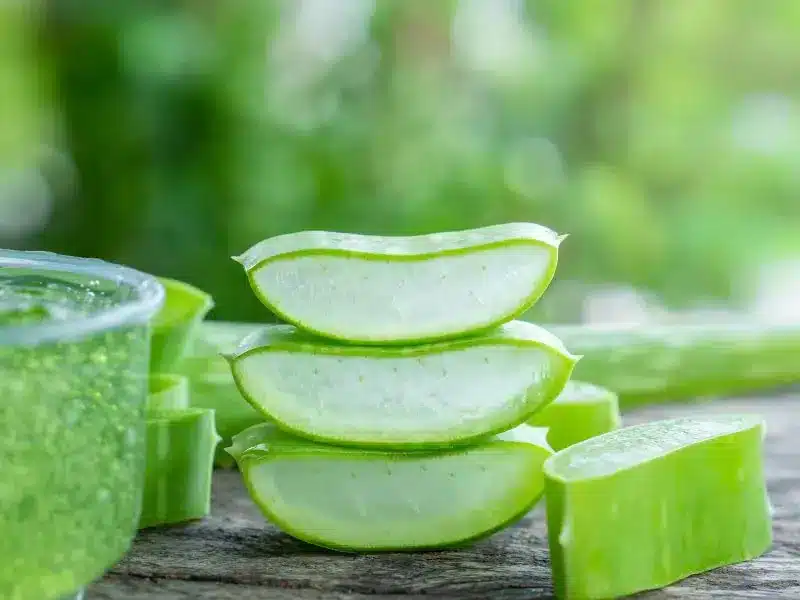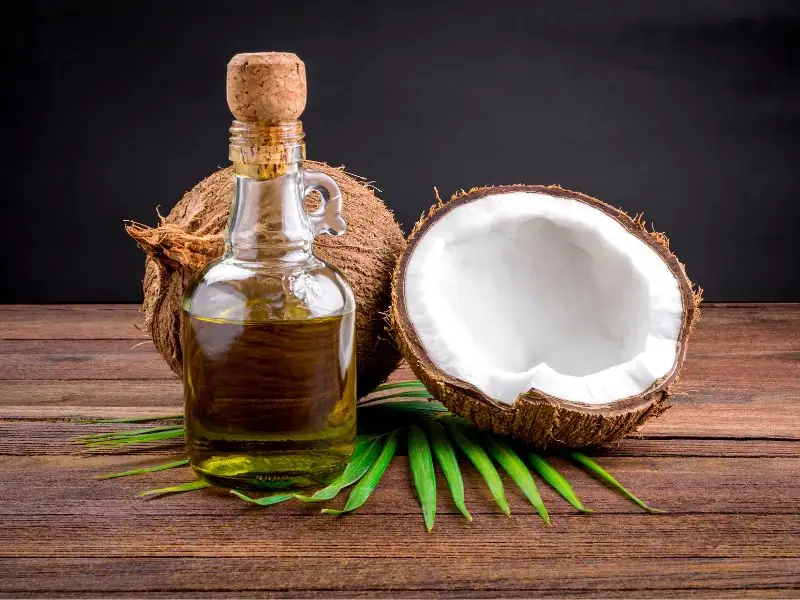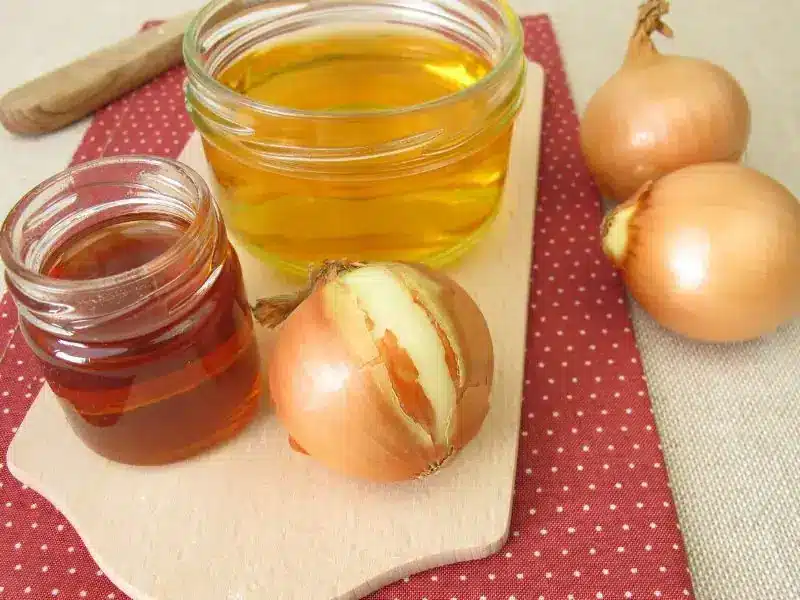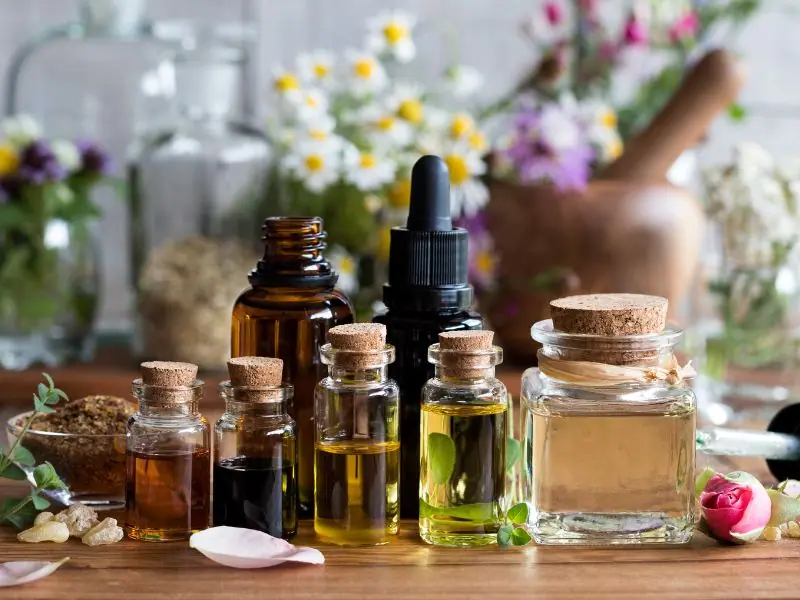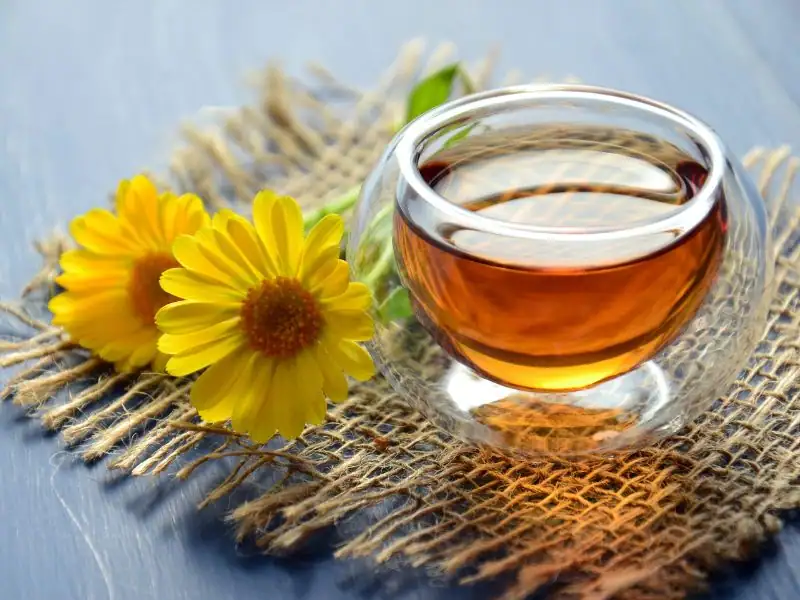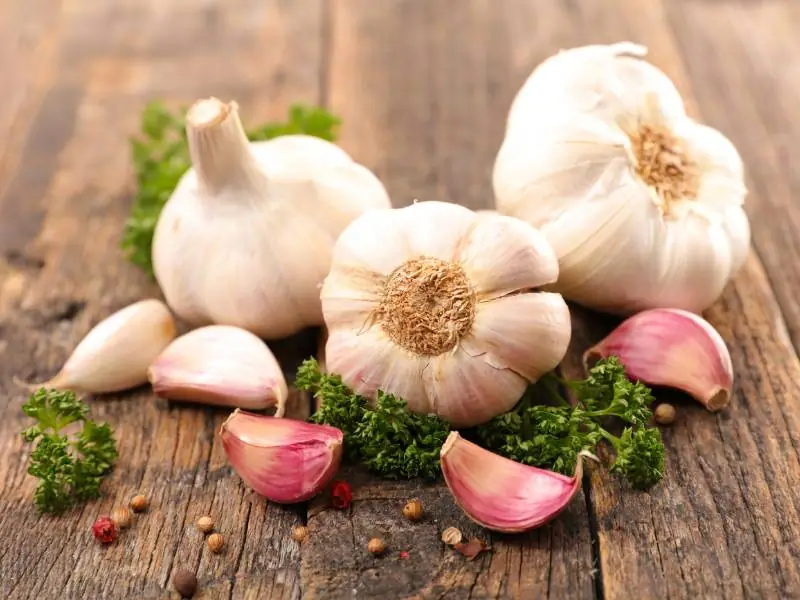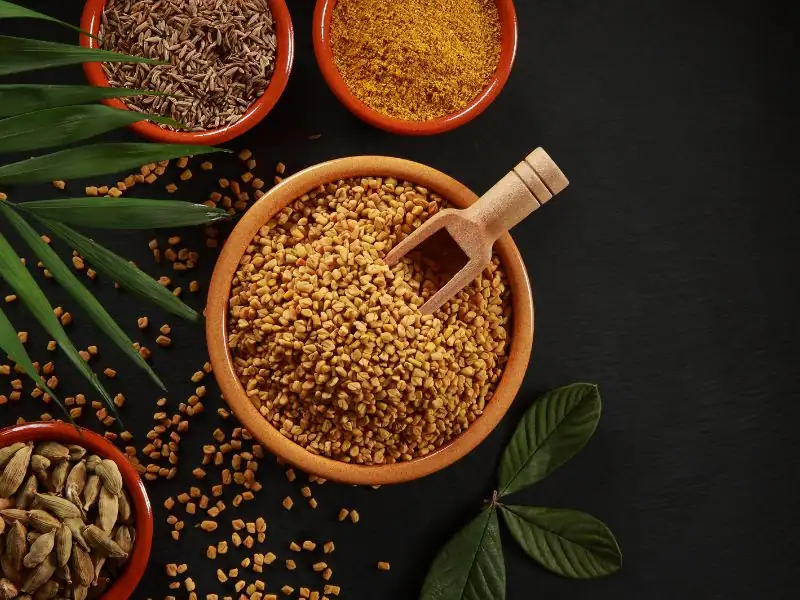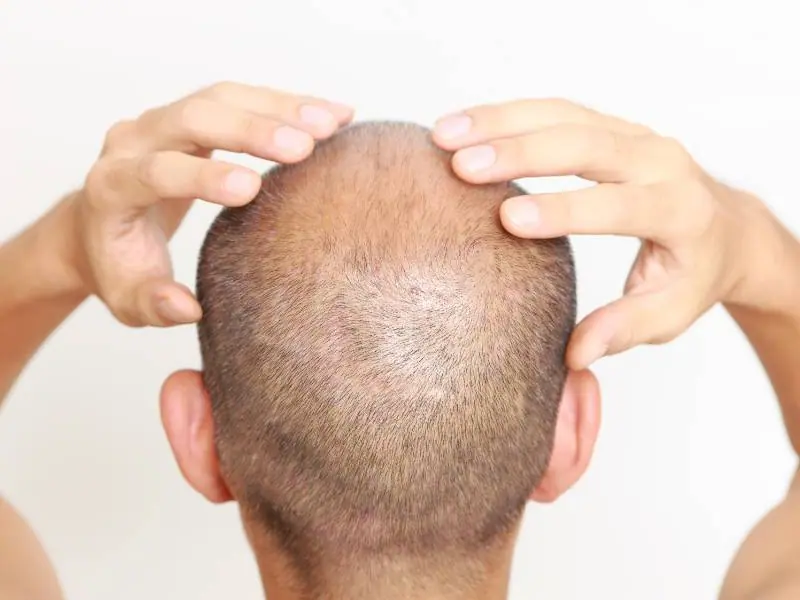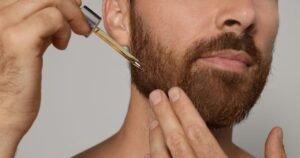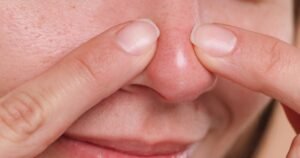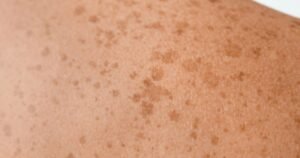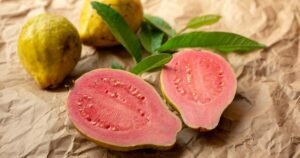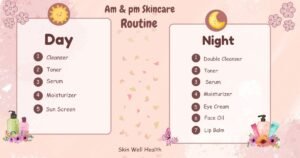Alopecia Areata | Best 12 Natural Home Remedies: You Should Be Using
Alopecia areata. It can be irritating just to say the name, and if you have unpredictable hair loss, you know what I mean. Sometimes it feels like your head is a battlefield, and those smooth spots can remind you of that all the time. However, before you give up, you can look into natural options with the guidance of your doctor.
In this article, you will find the best 12 natural home remedies for alopecia areata that might help promote hair growth and soothe your scalp.
What is Alopecia Areata?
Alopecia areata is an autoimmune disease that causes people to lose their hair. To put it simply, your immune system attacks the hair follicles, which normally fight off germs, mistakenly attacking the hair follicles (the little pockets in your scalp where hair grows). This attack breaks up the hair growth cycle, which is responsible for alopecia areata’s patchy hair loss.
Causes:
Several factors, including the following, can cause alopecia.
- Genetics
- Hormonal imbalances
- Autoimmune disorders
- Skin conditions
- Nutrient deficiencies
- Stress
- Medical treatments (e.g., chemotherapy)
Symptoms:
The main symptom of alopecia areata is:
Patchy hair loss. This is the most noticeable symptom; it usually shows up on the head as round or oval, smooth patches of baldness. You can lose hair on your face, eyebrows, eyelashes, or any other part of your body that has hair.
While hair loss is the primary sign, some people may also have other symptoms, such as:
Getting itchy or burning. This could happen in areas where hair loss is about to start.
Changes nails. People who have alopecia areata may have tiny pits or dents in their nails that make them feel rough.
Best 12 Natural Home Remedies for Alopecia Areata
🛑 Note: I’m not a doctor, and these aren’t miracle cures. But alongside your doctor’s guidance and according to some studies, these natural remedies can be a great addition to your hair growth journey.
1. Aloe vera
Because it heals and soothes, aloe vera is a well-known natural treatment for several skin and hair problems. It can help reduce inflammation around the hair follicles and promote healthy hair growth.
Research shows that aloe vera may be helpful to people who are experiencing hair loss. However, there needs to be more study to find out how well aloe vera works for alopecia areata.
To use:
- Get fresh aloe vera gel from an aloe leaf.
- Directly apply the gel to the affected areas of the scalp.
- For 30 to 60 minutes, leave it on.
- Use lukewarm water to rinse it off.
2. Coconut oil
Loaded with lauric acid, coconut oil can help strengthen and grow hair by getting into the hair root.
Besides, it may also have anti-inflammatory and antibacterial properties that are beneficial for hair health.
A 2020 study found that several natural oils, including coconut oil, showed promising results in alopecia areata.
To use:
- Melt a tablespoon of coconut oil just enough so that it becomes a liquid.
- Apply the oil to your scalp and hair and massage it gently.
- Leave it on for 30 minutes to an hour, or even overnight.
- To remove the oil, wash your hair well with a gentle shampoo.
3. Onion juice
Onion juice may smell bad, but it is beneficial for hair growth, so it’s worth it. It is believed that the sulfur in onions might promote hair growth by increasing blood circulation to the scalp.
In a small study, people with patchy alopecia areata who used onion juice twice a day for two months experienced hair growth that looked promising. According to this study, it may be more effective for men than for women.
But more research is needed to be sure how onion juice works effectively and fully understand how it works.
To use:
- Blend or juice an onion, then strain the liquid.
- Apply the juice to your scalp, massaging it gently.
- After applying it for 30 minutes to an hour, wash your hair thoroughly with a mild shampoo.
- If you experience any hair regrowth, you can use it twice a day for a few weeks.
4. Aromatherapy: Essential oils
An older study found that essential oils like thyme, rosemary, lavender, and cedarwood have shown promise for hair growth. These oils improve blood circulation to the scalp, which is beneficial for hair follicle health. These oils were used in a mixture of carrier oils (jojoba and grapeseed) on the scalp daily.
To use:
- Choose essential oils like cedarwood, lavender, thyme, or rosemary.
- Combine a few drops of essential oil with a carrier oil, such as grapeseed or jojoba oil.
- Massage the oil blend onto the scalp and affected areas.
- Before you wash it off, leave it on for at least 30 minutes.
5. Green tea
Green tea is not only a tasty beverage; it’s also rich in antioxidants that can benefit your hair.
According to a 2007 study, EGCG may stimulate human hair growth by promoting dermal papilla cell growth and survival. Green tea contains the major catechin, epigallocatechin gallate (EGCG), also known as epigallocatechin-3-gallate.
To use:
- Make a cup of green tea and let it cool down.
- Apply the cooled green tea directly to the scalp using a cotton ball or spray bottle.
- After 20 to 30 minutes, wash it off.
6. Hibiscus flower
Hibiscus flowers have been used for a long time in traditional medicine as well as to treat hair problems. These flowers are full of amino acids and vitamins that are beneficial for hair and promote its growth.
A 2003 animal study shows that hibiscus flower and leaf extracts may improve hair growth. However, more study is needed to confirm this effect in humans with alopecia areata.
To use:
- With dandelion oil, grind hibiscus flowers and leaves (fresh or dried) into a paste.
- Apply it to your scalp and hair, and leave it on for 1-3 hours.
- And then rinse thoroughly.
7. Garlic
Garlic can help your hair stay healthy and strong by reducing inflammation and increasing blood circulation to the scalp. Garlic’s potential benefits for hair loss come from its components, like allicin.
A 2007 study shows that topical garlic gel, combined with a corticosteroid, may be an effective additional treatment for alopecia areata. Some participants reported experiencing good to moderate hair regrowth, according to this study.
To use:
- Crush a few garlic cloves to get the juice out of them.
- Add a carrier oil, such as olive or coconut oil, to the garlic juice and mix them together.
- Apply the mixture to your scalp and leave it on for 30 minutes to an hour.
- To rinse it off well, use a gentle shampoo.
8. Fenugreek seeds
Fenugreek seeds are filled with proteins and nicotinic acid, which are believed to boost hair development and strengthen hair follicles.
One of the most important hormones for regulating hair growth is dihydrotestosterone (DHT). If your DHT levels are low or your DHT activity is high, it can cause hair loss, especially if you have androgenic alopecia (male or female pattern baldness).
Fenugreek seeds can help by stopping excessive DHT activity and restoring balance. These seeds have a lot of nutrients that help in hair growth and reduce the damaging effects of androgenic alopecia.
In the study of 2021, patients with several hair loss conditions were treated with botanicals (including fenugreek). This study found that the exract helped the scalp by reducing inflammation and oxidative stress, which damage the hair follicles.
To use:
- Leave fenugreek seeds in water to soak overnight.
- Grind the soaked seeds to make a paste.
- Apply the fenugreek paste to the scalp and affected areas.
- Give it on for 30-45 minutes, and then shampoo.
9. Fish oil
Fish oil has omega-3 fatty acids that have anti-inflammatory effects. Alopecia areata is an autoimmune disease, and inflammation may be a cause of hair loss.
A 2015 study suggests that taking an omega supplement along with antioxidants resulted in improved hair density and thickness, as well as reduced hair loss.
Talk with your doctor about including omega-3 supplements in your diet plan.
Also Read:
Find Your Solution: 11 Best Hair Vitamins for Alopecia areata
10. Scalp massage
An older study suggests that scalp massage can improve hair growth in alopecia areata.
A study published in 2019 found that massaging the scalp promoted people’s hair growth, blood circulation, and scalp health. You can also get rid of stress and tension by massaging your scalp. Stress and tension may cause you to lose your hair.
Here are some traditional scalp massage tips:
- Massage the scalp gently in circular motions using your fingertips.
- Apply gentle pressure to stimulate blood flow to the hair follicles.
- Apply light to medium pressure and focus on areas with hair loss.
- Do scalp massage for 4 to 6 minutes daily.
11. Healthy diet and Hydration
While external remedies can help, don’t forget the power of a healthy diet and proper hydration. A well-balanced diet full of proteins, vitamins, and minerals promotes hair health from within.
Daily, you should drink a certain amount of water to keep your skin and hair hydrated, making them look stronger overall.
A 2020 case study suggests that a healthy diet including zinc, vitamin D, and vitamin A might be useful in alopecia areata treatment.
There is no evidence that dehydration directly affects hair and causes alopecia areata or hair loss, but drinking plenty of water is necessary for hair growth, overall health, and keeping your scalp and body hydrated.
Also Read:
The Best Diet for Alopecia Areata: What to Eat and Avoid
12. Stress management for hair
Stress doesn’t just affect your mood — it can directly impact your hair. Research (2025) shows that about 1 in 4 people with Alopecia Areata (AA) experienced a major emotional or stressful event before their hair loss began. Managing stress not only makes you feel better inside, but it also makes your hair healthy. Relaxing activities you can do include:
- Deep breathing exercises
- Meditation
- Yoga
- Progressive muscle relaxation
- Listening to calming music
However, there is no evidence that stress can directly affect hair and cause alopecia areata but stress can worsen alopecia areata.
When Home Remedies Help — and When They Don’t
Home remedies may help if:
-
Hair loss is mild or limited to small patches.
-
You’re already receiving medical treatment and want supportive care.
-
You’re maintaining realistic expectations and consistent scalp care.
Seek professional help if:
-
Hair loss is spreading quickly or covers large areas.
-
You notice nail changes or eyebrow/eyelash loss.
-
You have other autoimmune conditions or a family history.
👉 Find a board-certified dermatologist near you via the American Academy of Dermatology’s directory.
⚠️ Safety Tips
-
Always dilute essential oils with a carrier oil.
-
Stop use immediately if burning, redness, or itching occurs.
-
Avoid harsh chemicals or tight hairstyles that pull on the scalp.
-
Discuss supplements (like biotin, zinc, or vitamin D) with your doctor before starting.
FAQs
Q: Can home remedies stop alopecia areata from spreading?
Not reliably. They can support scalp health, but stopping the autoimmune process requires medical therapy in most cases.
Q: Which essential oil is best for alopecia areata?
Rosemary and cedarwood are the most studied. Use with carrier oil and gentle massage.
Q: Is onion juice really effective?
A few small studies show mild improvement, but results vary widely, and skin irritation is common.
Q: Can diet reverse alopecia areata?
No diet can “cure” alopecia areata, but anti-inflammatory and nutrient-rich eating supports hair and immune health.
Conclusion
Home remedies and natural therapies for alopecia areata can be part of a holistic care plan, especially for mild or early cases.
For best results:
-
Pair natural care with dermatologist-guided treatment,
-
Maintain consistent scalp hygiene,
-
Support your immune system through diet, stress control, and sleep, and
-
Seek medical attention early if patches expand.
Hair regrowth is possible—especially when you act early, stay patient, and combine science with self-care.


